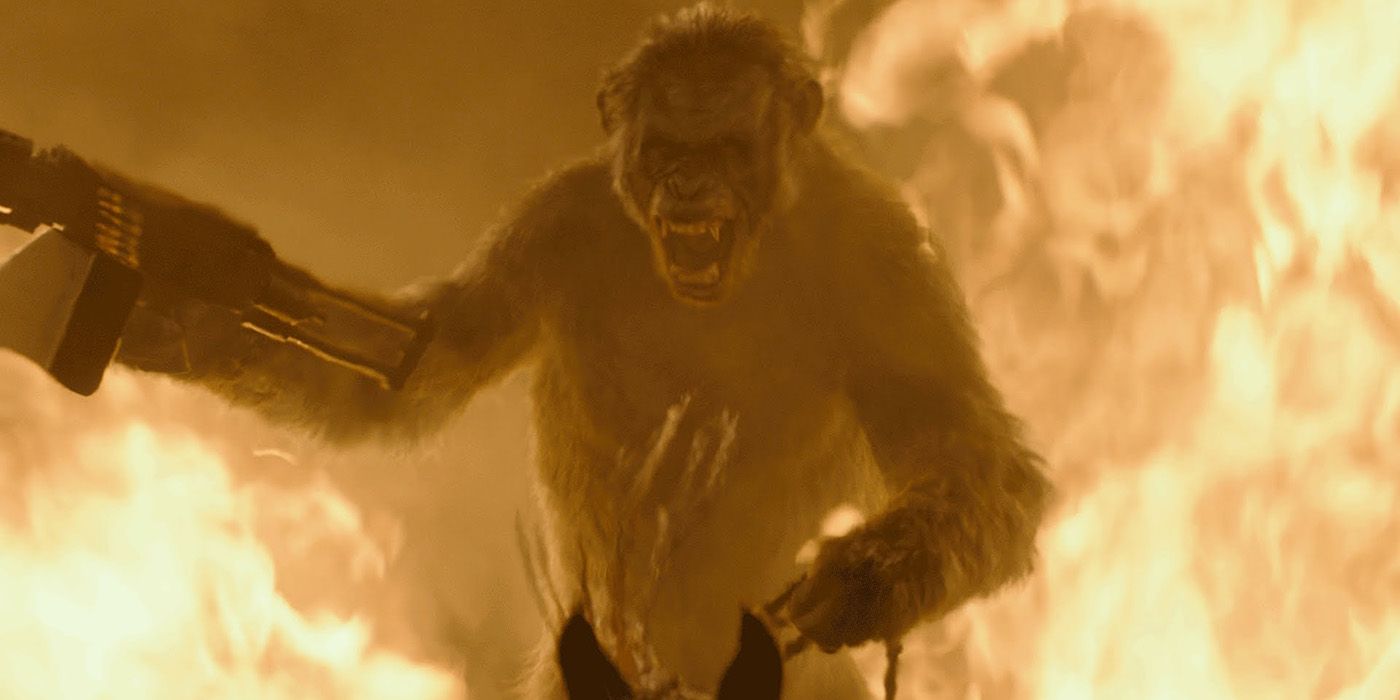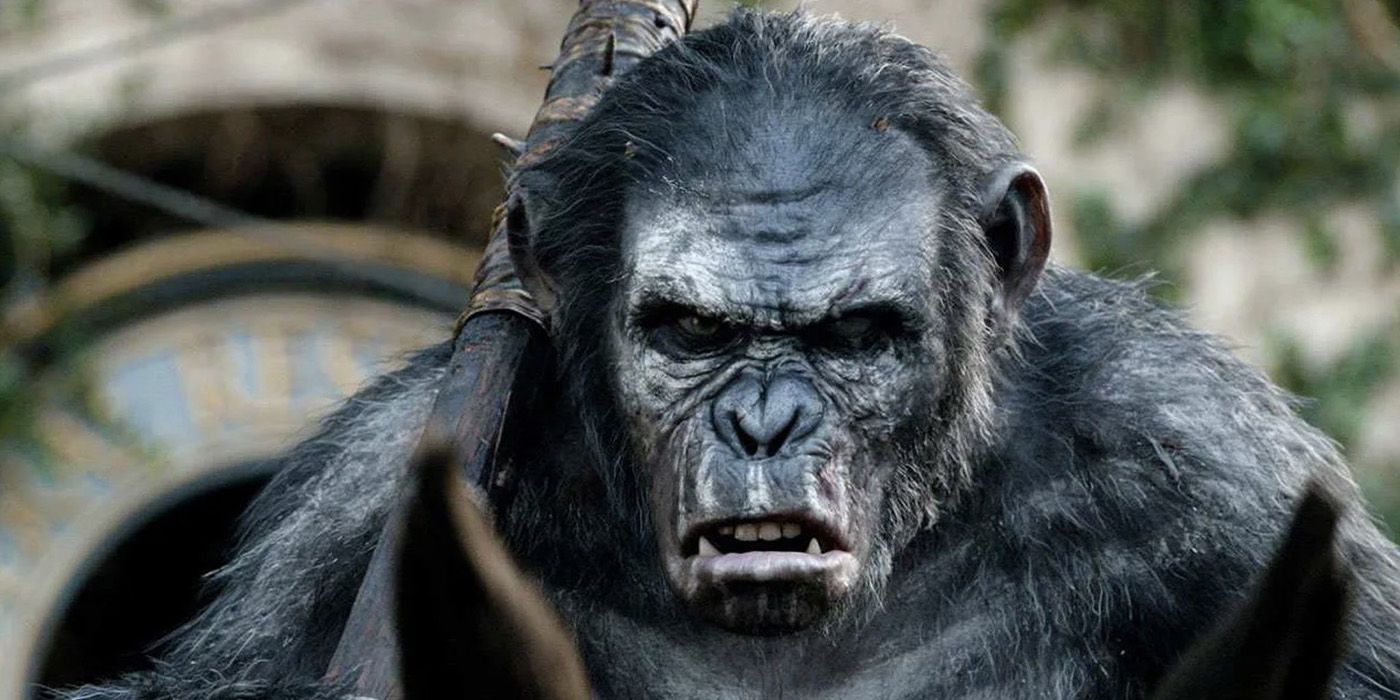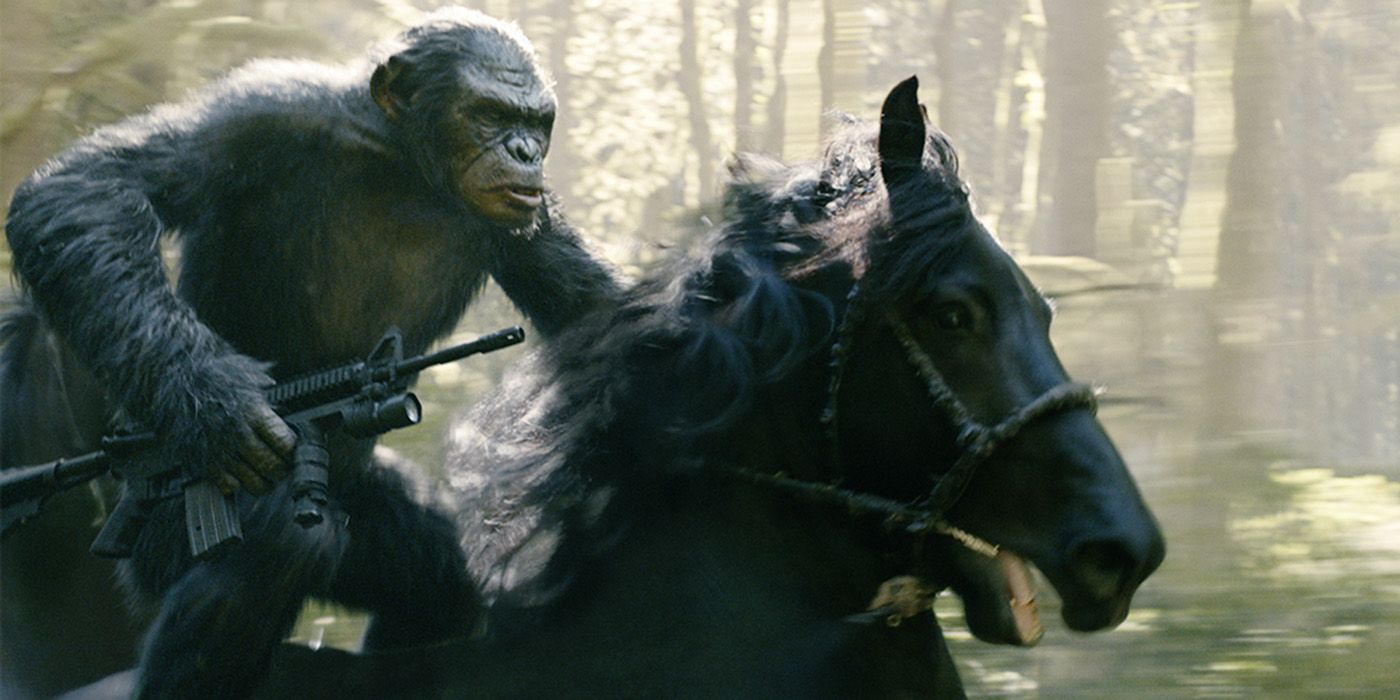
It is easy to regard Koba from Dawn of the Planet of the Apes as the villain of the film. He is portrayed as violent, tyrannical, racist and intolerant, even misguided. However, considering his arguments and experiences when compared to aspects of real-life history, the audiences should view him in an entirely different light. Koba is a revolutionary thrown forth in early Ape civilization. Koba sought to defend Ape civilization by launching a coup d’etat and establishing his own junta. He did so because he believed his policies were better suited to preserve and protect his people versus the soft, sympathetic, gentleness of Caesar.
The root cause of Koba’s Revolution lies in his leader’s views and actions toward the Human Question. As seen in Dawn of Apes, Koba witnesses convincing evidence to suggest that humans were arming themselves for violence. Apes were also witness to the brash violent reaction of a human upon first encounter with an ape after many years; an encounter that resulted in the shooting of an ape youth. Further interaction reveals that the humans are in a desperate state and that their future solely depends on the reinvigoration of a hydro dam.
RELATED: Predator Is A Smarter Movie Than You Remember
From this, two competing policies arise: one of diplomacy and compassion, championed by Caesar the King. The other of strength and hostility, championed by Koba the Revolutionary. Being King, Caesar’s policy is automatically enacted. Despite his defensive argument that assisting humanity will inevitably turn them into enemies, Koba at first adheres to Caesar. The result of this policy leads to yet another dangerous encounter between humans and an innocent ape as a weapon is discovered amongst the belongings of the very same human guilty of shooting an ape earlier.

Since permission to visit the Ape tribe was granted on the basis of surrendering all weapons, the betrayal should be pivotal in ape-human trust. Caesar, though, is softened by the allure of human medicine. Upon learning of the incident, Koba rightly confronts Caesar only to be assaulted and embarrassed. This was Koba’s fateful moment. From then on, Koba understood Caesar to be idealistic and dangerously blind to the wiles and deceit of humanity.
That Caesar would put his own family in harm's way to satisfy a clutching grasp of peaceful living, that Caesar would accept humans into Ape society even after they prove time and time again to be suspicious so long as it benefits him (in the case of medicine curing his wife) regardless of Ape public safety. It is thus cemented in Koba’s mind that the government of Ape society is directed by a cadre of spineless human sympathizers. Their lack of nerve has proven to him that they are unfit to address the serious issue present in the burgeoning human population. And so, as many in human history have done before him, Koba organizes a coup d’etat to overthrow the establishment and install his own junta. Doing so to protect and preserve Ape civilization from an obvious and growing human threat.
Koba’s actions are taken to preserve and protect Ape civilization and are somewhat justifiable in light of revolution. To remove the incumbent government and to establish a junta capable of handling the human population and preserving Ape civilization, Koba must assassinate Caesar, burn down their village as an excuse for aggression (and to create immediacy), and then wage a war of oppression against humanity. Throughout, it was imperative to maintain allegiance and squash dissent, as was displayed in the murder of Ash (the poor shooting victim mentioned earlier).
Koba’s plan seems to be taken right out of the manual for militaristic regimes during and post-revolution. Several examples from Earth’s history reveal the way groups leading revolutions respond to political opposition with either imprisonment or slaying, just as Koba did. How revolutionaries demand strict organization and obedience to the revolutionary line, lest the war turn into a tailspin of chaos and rampant criminality is authentic. In Koba’s Revolution, the elements of harsh discipline within his ranks, swift and immediate violence toward their enemy and the caging of dissidents are shared by real life revolutions. While each historical revolution and each historical group are vastly different and cannot be easily compared, one may often find many examples of broad similarities. The broad similarities are found here too, with Koba’s Revolution.

Koba’s characteristics include hot-headedness and impulsiveness, and at times an almost Machiavellian pattern, but his policy with regards to humanity was clearly justifiable. As far as Ape preservation goes, it was preferable to the tolerance offered by Caesar which led to human exploitative behavior and presumably – inevitably – the return of humanity as possessors of the Earth.
According to Koba, humanity failed in its reign of the Earth. In fact, they abused their reign with violence and mismanagement. In order to secure the future of an apex civilization for Apes, their greatest species rivals must be contained, or worse, annihilated. An Ape government employing this ideology would secure Ape civilization from enemies and preserve it for future generations. Should Koba prove a harsh tyrant even to his own tribe after victory against humans, no doubt the cycle of revolution and violence would renew, perhaps in the hands of Blue-Eyes and his group? That scenario, regretfully to Apes, will never be known on account of the defeat of Koba’s Revolution.
Koba, then, is not a villain in the sense of being irredeemable or wholly evil, but an Ape acting with convictions based on factual evidence, experience, and forward thinking – much like figures of our own history. Although his actions are violent and tyrannical out of context, in the context of him portrayed as a revolutionary in Dawn of the Planet of the Apes, they are crucial to secure the embryo that is primitive Ape civilization.

